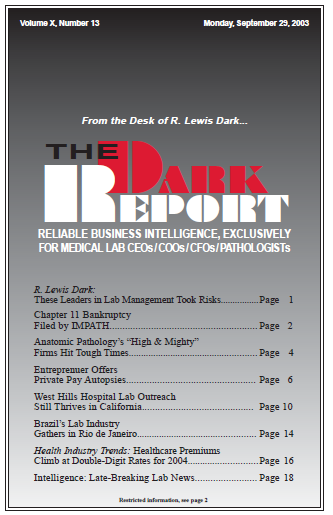CEO SUMMARY: In the years between 1995 and 2002, public companies AmeriPath, DIANON Systems, and IMPATH built revenues and profits at a blistering pace. During this time period, these three firms captured enough market share to do almost $1 billion of anatomic pathology business in 2002. But that run of business success has ended. Each […]
To access this post, you must purchase The Dark Report.


